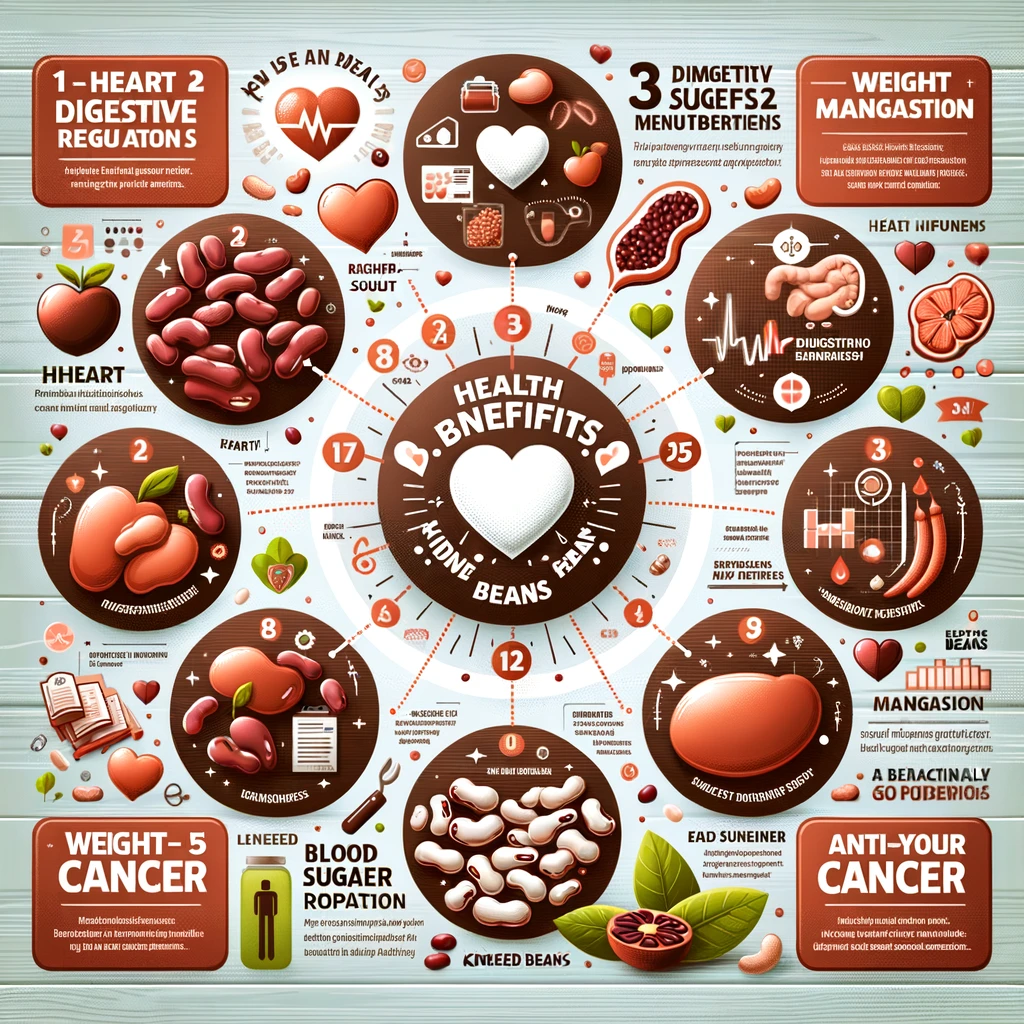In the world of legumes, kidney beans hold a special place. Known for their distinct shape and deep red color, these beans are not just a staple in various global cuisines but also a powerhouse of nutrition. As a nutritionist with over 15 years of experience in health and fitness, I’ve seen the transformative impact that integrating kidney beans into one’s diet can have.
Kidney beans are a versatile ingredient, making appearances in everything from hearty chili to refreshing salads. Beyond their culinary appeal, they offer a wealth of health benefits that are backed by science. In this article, we’ll delve into the nutritional profile of kidney beans, explore their health benefits, and provide practical tips for incorporating them into your diet.
Nutritional Profile
Kidney beans are a nutritional marvel. They are an excellent source of plant-based protein, making them a great choice for vegetarians and vegans. A single cup of cooked kidney beans contains about 15 grams of protein, which is essential for muscle building and repair.
But protein is just the start. Kidney beans are also rich in carbohydrates, primarily in the form of dietary fiber. This fiber aids in digestion and helps maintain a healthy gut. They also contain essential nutrients like iron, which is vital for transporting oxygen in the blood, potassium, which helps regulate blood pressure, and magnesium, important for bone health and energy production.

Health Benefits
- Heart Health:
Kidney beans can play a significant role in maintaining a healthy heart. The fiber content helps reduce blood cholesterol levels, thereby decreasing the risk of heart disease. Additionally, the potassium in kidney beans helps manage blood pressure, which is crucial for preventing heart attacks and strokes. - Digestive Health:
The high fiber content in kidney beans also benefits the digestive system. Fiber aids in regular bowel movements and prevents constipation. It also acts as a prebiotic, feeding the good bacteria in the gut, which is essential for overall gut health. - Blood Sugar Regulation:
For those managing diabetes or prediabetes, kidney beans are an excellent dietary choice. The low glycemic index (GI) of kidney beans means they have a lesser impact on blood sugar levels, providing a steady source of energy without the spikes associated with high-GI foods. - Weight Management: The combination of protein and fiber in kidney beans can help with weight management. These nutrients work together to provide a sense of fullness, reducing overall calorie intake by curbing overeating and snacking.
- Anti-Cancer Properties:
Kidney beans are rich in antioxidants, which combat the effects of free radicals in the body. Free radicals are known to cause oxidative stress, which can lead to cancer. Regular consumption of kidney beans can help reduce this risk.

Culinary Uses
Kidney beans are incredibly versatile in the kitchen. They can be a key ingredient in a range of dishes, from the classic red bean chili to a simple yet nutritious salad. Here are some ideas to get you started:
- Salads: Toss cooked kidney beans with fresh vegetables and a vinaigrette for a nutritious lunch.
- Soups and Stews: Add them to soups and stews for extra texture and flavor.
- Rice Dishes: Mix them with rice for a complete protein meal, ideal in vegetarian diets.
- Snacks: Mashed kidney beans can be used as a spread on toast or in wraps.
Cooking kidney beans properly is crucial. They should be soaked overnight and boiled until tender to reduce the presence of natural toxins and ease digestion. This also helps reduce compounds that can cause gas, making them more stomach-friendly.

Kidney Beans in Special Diets
Kidney beans are a boon for those on special diets:
- Vegetarian and Vegan Diets: As a protein-rich food, they are an excellent meat substitute.
- Gluten-Free Diets: Naturally gluten-free, they are safe for those with gluten intolerance or celiac disease.
- Low-Glycemic Index Diets: Their low GI makes them suitable for people managing blood sugar levels.
Precautions and Side Effects
While kidney beans are generally safe and healthy, there are a few things to keep in mind:
- Allergies: Some people may be allergic to kidney beans, so it’s important to be aware of any adverse reactions.
- Proper Preparation: Raw or improperly cooked kidney beans contain lectins, which can be toxic. Always soak and cook them thoroughly.

Conclusion
Kidney beans are more than just a culinary delight; they are a treasure trove of health benefits. Incorporating them into your diet can lead to improved heart health, better digestive function, regulated blood sugar levels, and even weight loss. With their versatility in recipes and suitability for various diets, kidney beans are an excellent choice for anyone looking to enhance their health through diet.
References and Further Reading
For those interested in exploring the scientific studies and research backing these benefits, numerous resources are available. These studies provide in-depth insights into the nutritional and health aspects of kidney beans.

